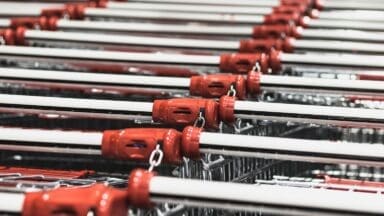
According to the Office of National Statistics (ONS), the largest upward contributors to the rise were from “housing and household services, transport, and recreation and culture”, which have pushed inflation above the Bank of England’s target of 2%.
Households were hit by sharp rises in energy, water bills and food prices, whilst businesses were faced with the rise in employer National Insurance contributions and the higher minimum wage.
Kris Hamer, Director of Insight at the British Retail Consortium, said:
“Headline inflation accelerated in April as additional costs from rising National Living Wage and Employers’ NI costs filtered through to prices faced by consumers, as well as rising costs of utilities (energy, water and broadband). The jump in labour costs pushed up food inflation, which climbed above 3%. However, there was some good news for furniture and clothing shoppers as prices fell year on year, with retailers offered good promotions on summer apparel and electricals. Even with food prices rising overall, there were still deals to be had, with prices of dairy products such as milk, cheese and eggs falling on the month.
“Rising inflation was inevitable following the wave of additional costs hitting employers, and particularly retailers who employ over 3 million people across the country. For months retailers have been warning that rising costs would lead to higher prices. To mitigate this, the government must now find ways to help reduce business costs and regulatory burden. It is imperative that its Employment Rights Bill targets unscrupulous employers and avoids burdening responsible businesses with additional costs which could put retail job numbers into reverse.”

